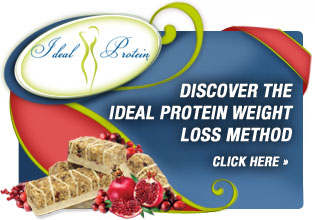By Nina Nethery
www.LoCarbDiner.com
Is it true that a Low Carbohydrate diet is a High Fat diet? Well, yes and no! In general, low carb dieters are told not to be concerned about fat consumption while counting carbs. We soon discover that it’s the fats that make us feel full and the carbs that make us feel hungry, so we consume much less food overall when we cut out the carbs. However, it is also true that we learn to distinguish healthy fats from unhealthy ones.
If you are struggling to lose weight, it’s good news that you can indulge in meat while you eliminate bread, pasta, rice, potatoes and sugary sweets. When you cut out the heavily processed foods and refined sugars, you are also automatically cutting way back on your consumption of the worst kind of fat – the manufactured trans fats which are identified as hydrogenated or partially hydrogenated oils on food labels.
Fats serve an array of important functions, including cushioning our organs against shock and insulating vital tissues against cold. They also influence body-temperature regulation, pain sensitivity, appetite control and cognitive performance. Low carbers eat liberal amounts of fats and oils such as butter, olive oil, mayonnaise and any oils that are liquid at room temperature such as canola, walnut, soybean, sesame, sunflower and safflower oils.
There are three oil “superstars” to consider. Cold-pressed avocado and macadamia oils are rich sources of mono unsaturated fats. They are a good source of Omega 3 fatty acids, and most important, as with all "cold pressed" oils, the taste is great. Avocado Oil is a good source of vitamin E. Grapeseed oil with its “gourmet” flavor is an excellent source of Vitamin E, valuable antioxidants, and essential fatty acids, such as Linoleic acid (Omega 6). All three oils can be sautéed or fried without smoking, splattering or burning.
Saturated fats have gotten a bum wrap in years past, but numerous recent studies have shown that saturated fats (when consumed along with low carbohydrate intake) can enhance the immune system, protect the liver, help build healthy bones, and raise the “good” HDL levels. Saturated fats are found in meat, butter and other animal products, as well as tropical vegetable oils like palm and coconut oils. If you are still on the fence about including saturated fats in your low carb diet, have your blood lipid profile tested before you begin and again a few months later. Your numbers will likely improve significantly as long as you stick with the program.
Trans fats, the dangerous evil cousins of saturated fats, begin as natural, polyunsaturated fats but are molecularly altered by being heated and artificially saturated with hydrogen. Trans fats tend to stick around in the form of arterial plaque and wreak other physiological havoc. A large body of research shows that consumption of trans fats is associated with increased levels of LDL and triglycerides and a decrease in HDL, raising the risk of heart disease. Low carb dieters are strictly steered away from trans-fat junk foods, most margarines and vegetable shortening.
Fat is the mechanism that makes controlled carbohydrate weight loss work. Low carbers know that “fat is your friend” not only because it is satiating but because it slows down the release of glucose into the blood. When your body uses fat, rather than glucose for fuel, the metabolic process is working at peak efficiency.
Note: Much of the information for this article came from the Atkins Center website, www.Atkins.com. Please visit this site for more information. LoCarbDiner.com is a certified Atkins Retail store.
|
|

